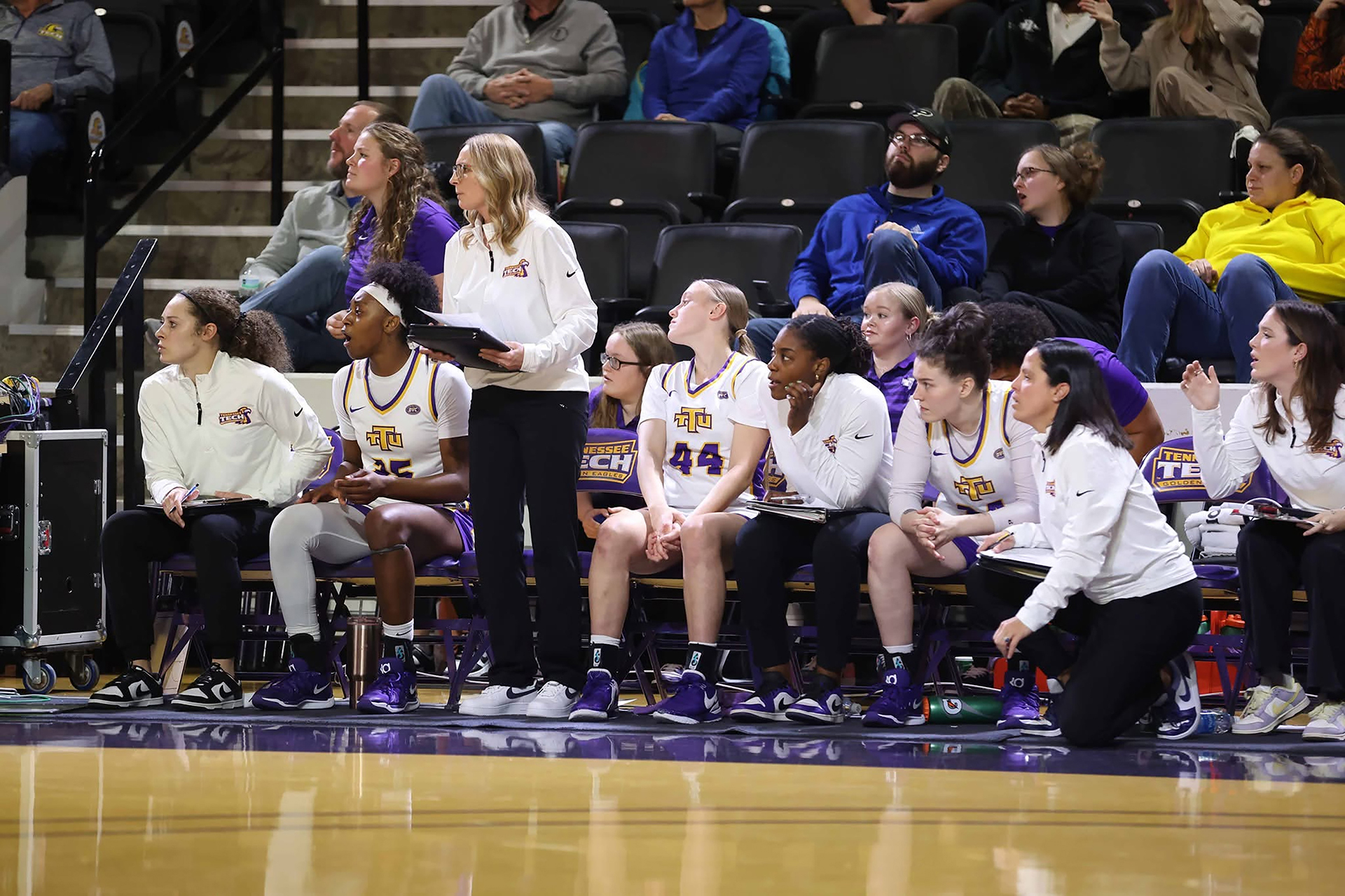Small improvements key to big success — in sports and life — says alumna coach
By Margaret Schell
W hen Georgia College & State University alumna Melanie Stephens Walls (’96, ’98) first picked up a basketball in fourth grade, she was hooked.

She discovered her competitive spirit, which she still taps into daily in her role as associate head coach of the Tennessee Tech University’s Women’s Basketball Team.
“I love to win no matter what,” Walls said. “In doing so, I've failed a ton. As I've gotten older and having coached for 26 years, it's not about being afraid to fail.”
Walls got her first taste of competition growing up on a dairy farm. As one of 13 grandchildren all vying for the same toys, she learned to go for what she wants.
She also learned teamwork.
“The biggest thing was to try to find success with four others on the court,” Walls said. “They relied on me, and I had to rely on them.”
In coaching, she realized the same rules apply.
“You can't ask of others what you're not willing to do yourself,” Walls said. “Early in my coaching career, I figured out that being a good leader meant I had to be a servant leader — the most effective type of leader. You must be willing to find out what your players need from you and serve them in that way.”
She began practicing servant leadership when she was captain of the Georgia College & State University Women’s Basketball team.
Her first year as a player-coach, as a junior, the team made it to the Peach Belt Conference Championship. The following year, they became PBC Champions then competed in the NCAA Tournament.
“That was the first time Georgia College had been to the NCAA in a while, so it was a huge experience for us,” she said. “I was a grad assistant the next year, and we were able to compete in the NCAA Tournament back-to-back.”
Walls’ 148 three-point baskets rank eighth in GCSU history. She also once scored seven three-point baskets in a single game — the second in school history.
A Coach-in-the-Making
She didn’t do it on her own. Walls credits GCSU coach John Carrick for recognizing her ability to impact the game in a new way.
“He hired me as a grad assistant and gave me a few years to get a feel for coaching,” she said. “I really appreciate my coach for seeing that ability in me when I didn't see it in myself.”
After graduating from Georgia College, Walls landed her first women’s basketball coaching job at Binghamton University in New York, which led to her current role at Tennessee Tech.
As associate head coach there, Walls often steps in for Head Coach Kim Rosamond who gets pulled in many directions.
“When coaching at this level, I must take over and run things smoothly,” she said. “I enjoy being an extension of her.”
The 1% Rule
Walls motivates each player by listening to the goal they plan to achieve by the end of the season then challenging them to come up with ways to improve 1% each day.
“I find out what they want then help them achieve it,” Walls said. “When it's their idea, motivation becomes a lot easier.”
Walls sees a strong correlation between performance in class and on the court; in fact, six of her players had perfect GPAs this year. The team’s average GPA was 3.793 — the highest of the 15 sports on campus.
“I believe how you do one thing is how you do everything,” she said. “Although perfection will never be achieved, excellence is what we are always chasing.”
Wall’s team members are successful in the classroom. Six of her players had perfect GPAs.
The Golden Eagles Women’s Basketball team won its conference in the 2024-2025 season then fell to the South Carolina Gamecocks in the NCAA national tournament.
“Getting to the NCAA tournament spoke to our team’s hard work,” Walls said. “Most Division 1 student-athletes don't get the chance to participate in that tournament, and our team did it in two of the last three years.”
As Walls transitioned through playing then coaching basketball, she learned the value of transferrable skills.
“The team’s chemistry is so vital,” she said. “Each player must find a way to function together to be successful on the court. That dynamic also works in corporate America and other aspects of life.”
